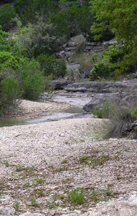 City of Austin, Texas
City of Austin, Texas
CES has provided consulting services to the City of Austin on a variety of decentralized and alternative wastewater collection systems projects and programs during the past eight years including: Developing language and recommendations for local ordinances and policies related to construction standards and management of OSSF’s; development of City standards for alternative wastewater collection systems; review on behalf of the City’s WWW Utility of development proposals for decentralized wastewater systems and alternative collection systems; participation on the City’s Smart Growth task force; and assistance to Council members in negotiating contracts with surrounding communities for the type of wastewater service provided by the City.
CES services for the City’s Water Utility have included developing language and recommendations for local ordinances and policies related to construction standards and management of decentralized wastewater systems; development of City standards for alternative wastewater collection systems; review on behalf of the City’s WWW Utility of development proposals for decentralized wastewater systems and alternative collection systems; participation on the City’s Smart Growth task force; and assistance to Council members in negotiating contracts with surrounding communities for the type of wastewater service provided by the City. Services also included the design, construction oversight and monitoring of alternative wastewater systems demonstration projects, including sand filter and wetland systems, and a system designed to serve facilities on one of the City’s conservation lands.
Other decentralized wastewater consulting work for the Utility has included the development of recommended rates for various types and levels of service for alternative collection and decentralized wastewater systems (individual and clustered). Recommendations included evaluation of routine inspections and maintenance, servicing/repairs, sludge/septage management, useful service lives, and life cycle costs. Cost estimates were developed for decentralized and alternative collection systems for specific developments to provide a basis for comparing traditional service options with non-traditional service by the City’s Water Utility.
